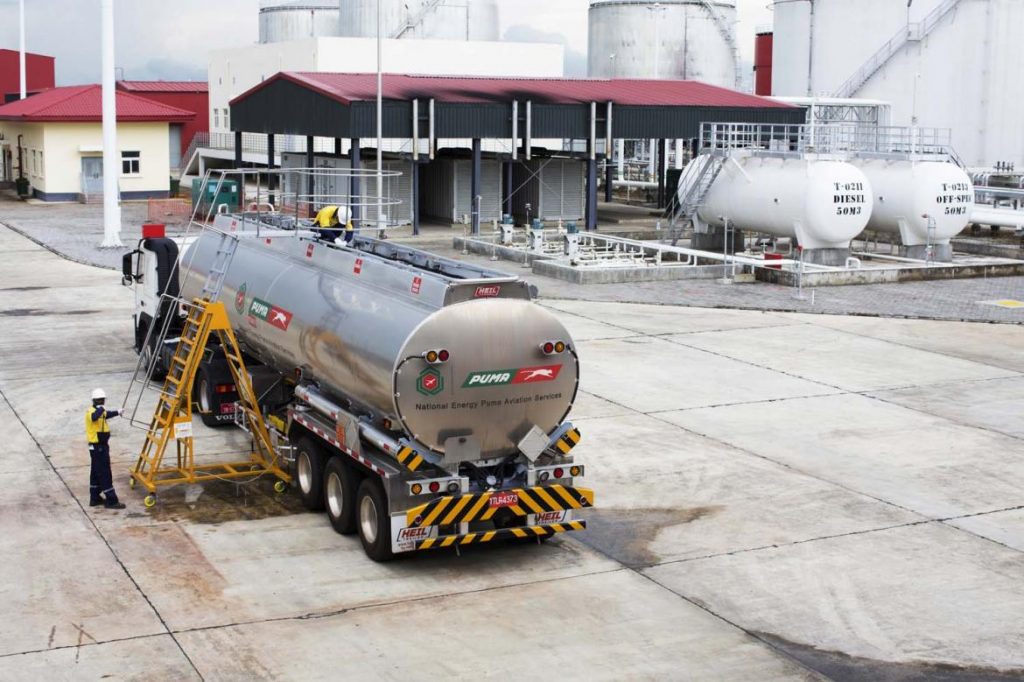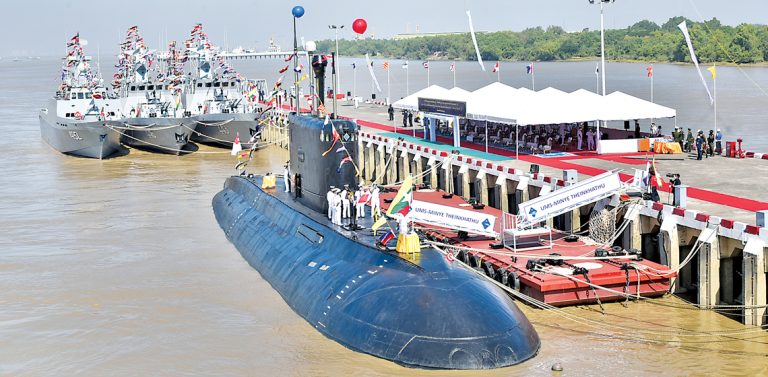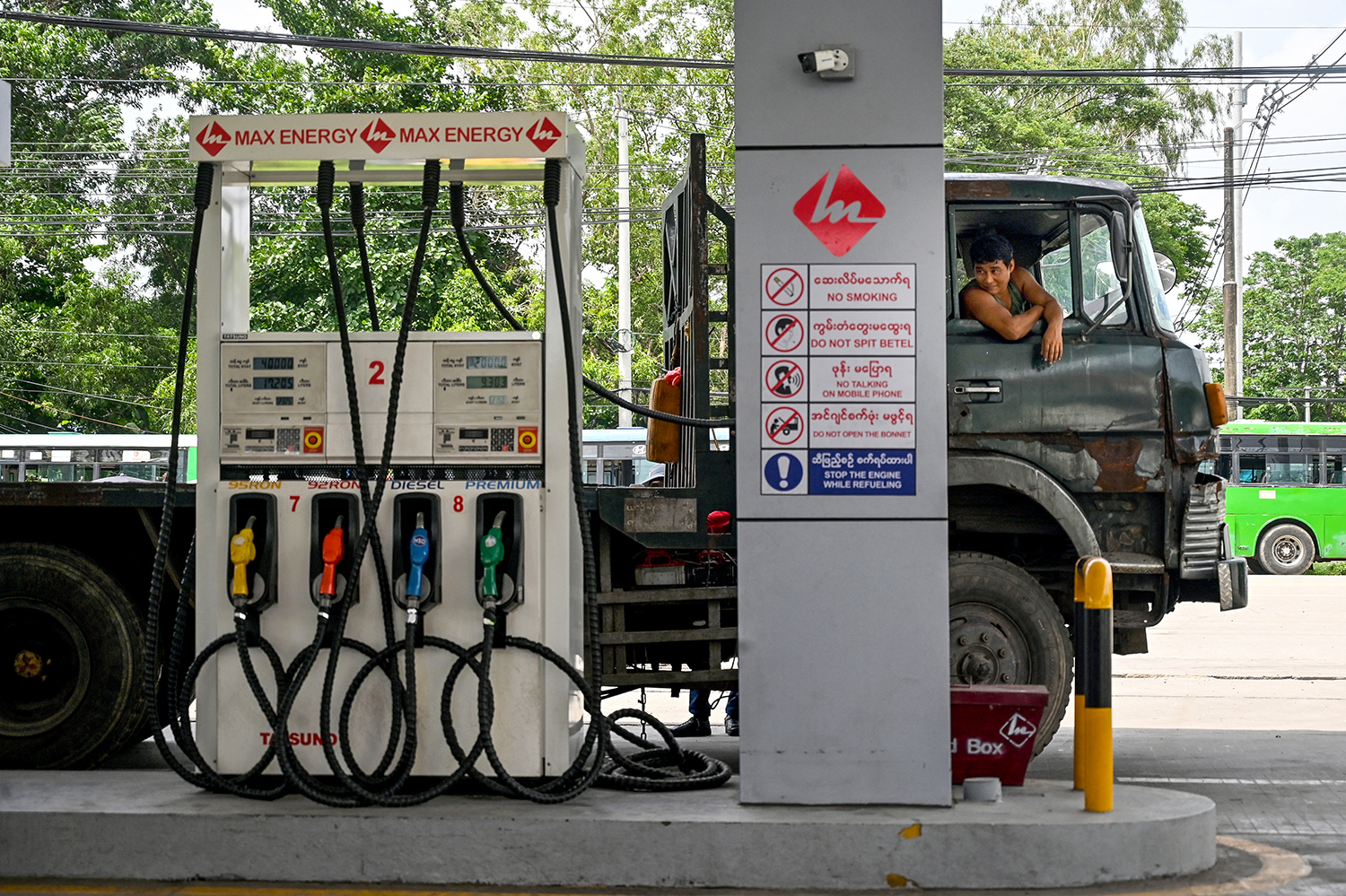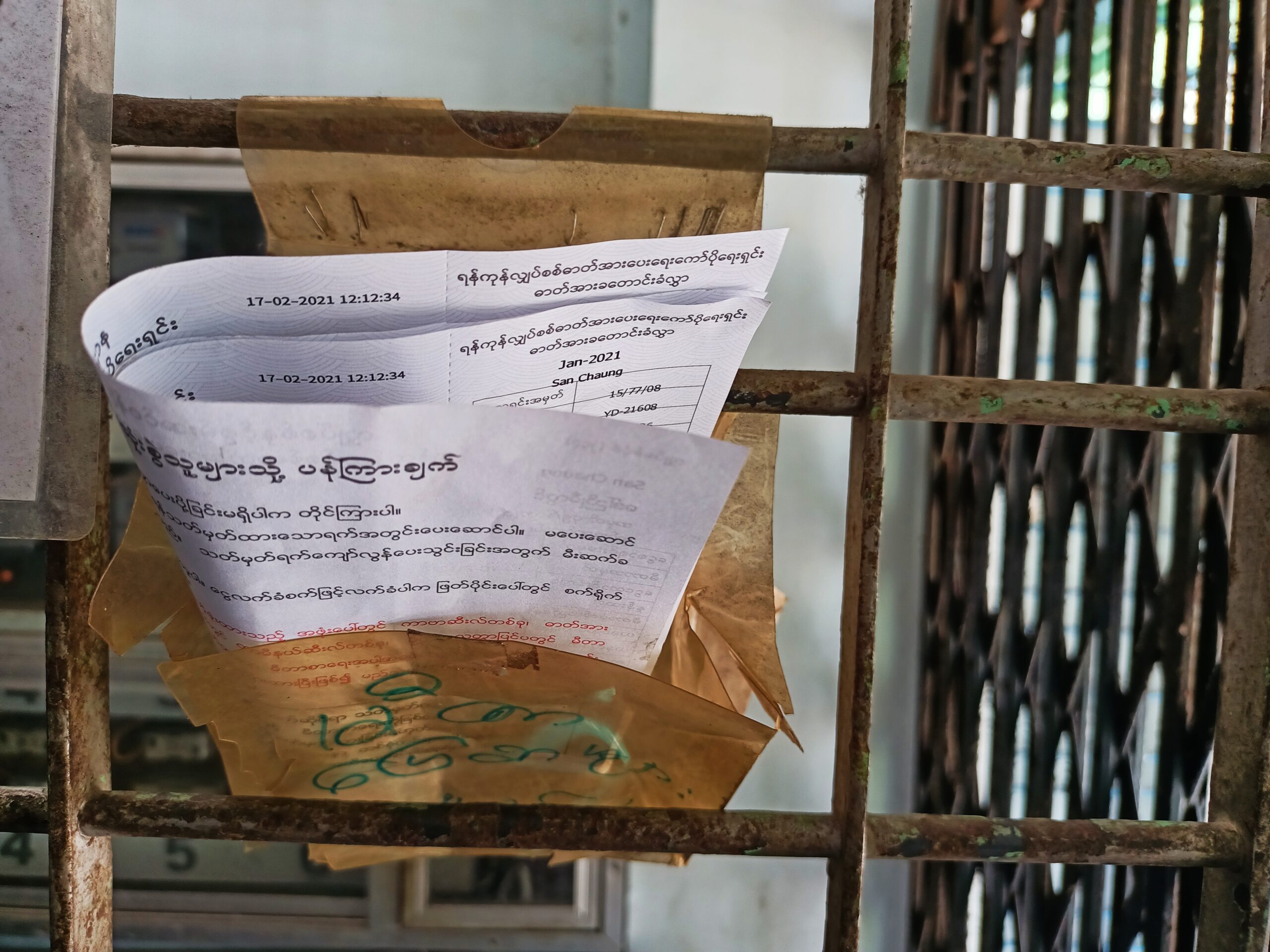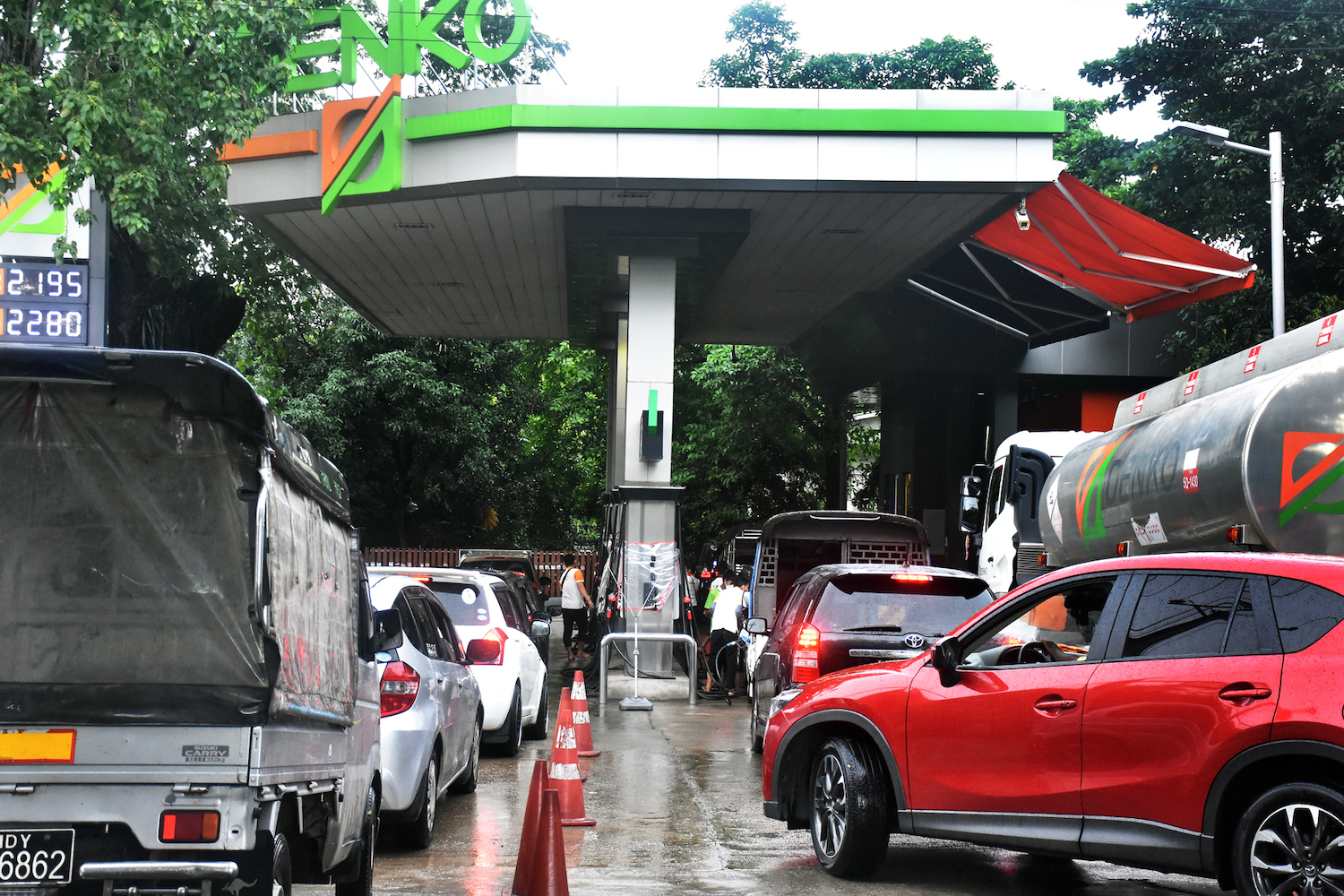Competition is finally coming to the aviation fuel business, with up to three companies planning to take on a state-backed monopoly and (possibly) deliver cheaper airfares for travellers.
By KYAW YE LYNN | FRONTIER
MORE THAN six months after it received permission to operate an aviation fuel business, Golden Myanmar Airlines Public Co Ltd says negotiations are nearing completion on an agreement to lease land at or near eight airports to provide the service.
GMA is one of at least three companies seeking to enter the sector and end a state-backed monopoly that critics say is undermining the viability of domestic airlines and causing foreign airlines to avoid refueling in Myanmar.
GMA began negotiations with the Department of Civil Aviation to lease plots for the service, including for Yangon and Mandalay international airports, after the Directorate of Investment and Company Administration gave it permission on April 5 to supply aviation fuel.
“The plan to lease the land was submitted to the President Office through the Ministry of Transport and Communications this week; so the process is in the final stage,” U Win Kyaw Moe, general manager for admin, HR and ground operations at GMA, told Frontier on October 25.
Support more independent journalism like this. Sign up to be a Frontier member.
Win Kyaw Moe said the process took longer than expected because of limited land availability at Yangon International Airport.
The DCA had agreed to lease ministry-owned land about a five-minute drive from Yangon airport, he said.
DCA spokesperson and deputy director general U Ye Htut Aung confirmed that the ministry had agreed to lease plots to GMA for the service.
Ye Htut Aung said land was being leased to GMA at the same price as that paid by National Energy Puma Aviation Services, a joint venture formed in 2015 between state-owned Myanma Petroleum Products Enterprise and Singapore’s Puma Energy.
The land is being leased at K5,000 a square metre for a year, Ye Htut Aung told Frontier in an interview at his office on October 18, one week before he retired from the DCA.
This is well below the market rate, but Ye Htut Aung said the DCA had opted not to charge GMA the market price because it wanted to contribute to the development of the aviation sector.
The lease required approval from the president’s office because it is a 10-year contract, he said. Under an order issued in 2018, approval from the president’s office is needed to lease state land for more than five years.
Ye Htut Aung added that GMA will be able to start operating a year after the president’s office approves the proposed land lease agreement.
A lack of competition
During decades of military rule, MPPE enjoyed a profitable monopoly in the aviation fuel business. However, the U Thein Sein government quickly realised that the high price and poor quality of fuel provided by MPPE was a hindrance to the growth of the aviation, tourism and logistics sectors. In June 2013 the Ministry of Energy announced a tender for a joint venture partnership and the following year selected Puma Energy as the winner.
The joint venture, NEPAS, operates at 11 airports and supplies fuel to 22 international airlines and 10 domestic carriers.
Puma’s multimillion-dollar investment in equipment and infrastructure has improved the quality of aviation fuel, but NEPAS remains the only supplier and has been accused of monopolising the aviation fuel business at Yangon airport, which accounts for about 75 percent of aircraft refuelling in the country.
The DCA, which is responsible for regulating airports and airlines in Myanmar, is among the aviation sector entities that have expressed displeasure at the lack of competition in the sector, particularly at Yangon airport.
“The main reason the jet fuel price here is higher than in other countries is the lack of competition at the two main international airports at Yangon and Mandalay,” said the official on condition of anonymity because he was not authorised to speak to the media.
“That’s why the DCA negotiated with two private companies to make it more competitive,” he said in mid-September.
DCA spokesperson Ye Htut Aung said Yangon Aerodrome Co, Ltd was the only other firm that operates an aviation fuel business, but it only serves Nay Pyi Taw International Airport, which has very few domestic and international flights.
“So, yes, NEPAS is the only player … and of course, the fuel price is a bit higher,” he said.
Ye Htut Aung cited complaints from airlines that aviation fuel prices in Myanmar were at least 50 US cents a gallon higher than in other Southeast Asian countries.
He said the price in Myanmar is $2.50, compared to between $1.90 and $2 in Singapore, and $2.01 in Thailand.
Ye Htut Aung said he was aware that some of the 41 international carriers that fly to Myanmar – most of which are based in Singapore and Thailand – avoid refueling here because of the high fuel prices.
“That’s why we want to have two or more fuelling services at each airport – it will boost competition and reduce fuel prices,” he said, adding that this should result in lower fares.
img_3378.jpg
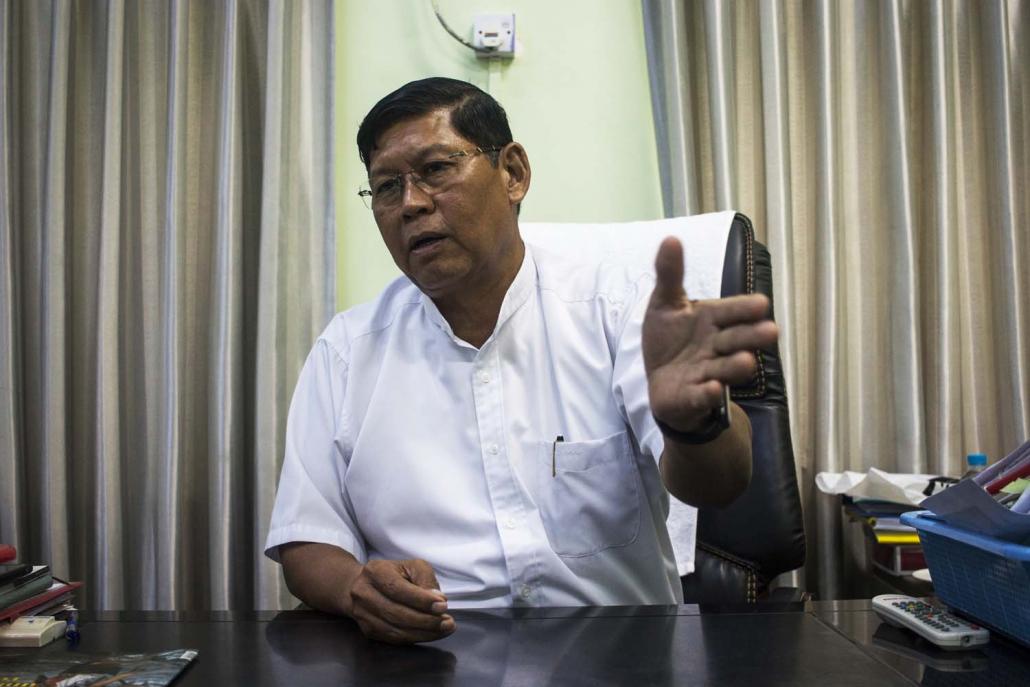
Department of Civil Aviation deputy director general U Ye Htut Aung. (Thuya Zaw | Frontier)
A third player?
Myat Myittar Mon, a private company that imports petrol and operates petrol stations in Myanmar, is also planning to expand into aviation fuel.
Ye Htut Aung said MMTM had made a proposal to the ministry to operate an aviation fuel business, but was yet to submit a business plan.
“I think MMTM can do this business as it has experience in importing and distributing petrol and has the necessary infrastructure,” he said.
“Each airport then would have two or three fuelling services,” he said.
MMTM managing director U Win Myint said the aviation fuel business generates healthy profites compared to petrol retailing.
He estimates that NEPAS has a profit margin of between 20 to 25 percent, while that of retailing petrol was only between 2 and 4pc. MMTM had promised the DCA that if it received permission to supply aviation fuel, it would make only about a 5pc profit, Win Myint said.
“I think the term ‘monopoly’ is too strong to describe the current situation; I would just say it is not a level-playing field,” he told Frontier at his office on October 17.
He explained that as the incumbent operator with state backing, NEPAS had many advantages over new players, such as access to land and infrastructure.
Before NEPAS was established, all profit went to the government because MPPE is state-owned, Win Myint said.
“Now, it is NEPAS; it’s a joint venture with a foreign firm. [Some of] the profit goes to the foreign firm,” he said. “Any capable local firm should have the same rights.”
Win Myint estimates that Myanmar imports $11 million worth of aviation fuel each month and there is a foreign currency outflow of at least $1.6 million.
Several sources told Frontier that Yangon Aerodrome, the subsidiary of conglomerate Asia World that operates Yangon International Airport, was also preparing to operate an aviation fuel service at Yangon airport to cash in on the high profits.
“That’s why they refused to give land to GMA,” said the DCA director, who asked not to be named.
Ye Htut Aung confirmed that Yangon Aerodrome has the right under its contract to operate an aviation fuel service at Yangon airport.
Frontier was unable to reach Yangon Aerodrome for comment.
Cost factors
In a written response to Frontier, MPPE rejected accusations it had monopolised the industry.
It noted that the Ministry of Electricity and Energy supported competition in the aviation fuel sector and had approved GMA’s plan to build infrastructure for its venture.
It also cited Myanmar Investment Commission Notification 15/2017, which states that any business, foreign or local, can import/export, transport, store or distribute oil, natural gas and petroleum products with the approval of the ministry.
MPPE said that its joint venture with Puma Energy had enabled international standards to be met in a short time.
MPPE admitted that the fuel price charged by NEPAS was about $1 a gallon higher than in Singapore, the main source of aviation fuel imported by Myanmar, but cited several factors for the higher prices, such as transportation costs and heavy taxes.
It said the price of aviation fuel could be reduced by importing crude oil and refining it into aviation fuel, and by transporting the fuel to airports using pipelines rather than trucks.
MMTM and other sources said they were aware of the factors that contribute to high aviation fuel prices in Myanmar, but believed there was still room for NEPAS to cut prices.
“If NEPAS really wants to reduce the price, it can do so immediately; but it would have some impact on their profit,” an industry source told Frontier. “Why would they reduce prices when there is no competition?”
Ye Htut Aung said fuel prices would certainly fall once the sector becomes more competitive.
GMA said it hoped to begin operations at Yangon airport and other airports a year after reaching a final agreement with the government.
It said it planned to launch the aviation fuel business at Tachilek Airport, which serves the Shan State town of the same name on the border with Thailand.
“It would be serve as pilot project,” said Win Kyaw Moe. “But at the same time, we will also prepare to launch services at other airports.”


